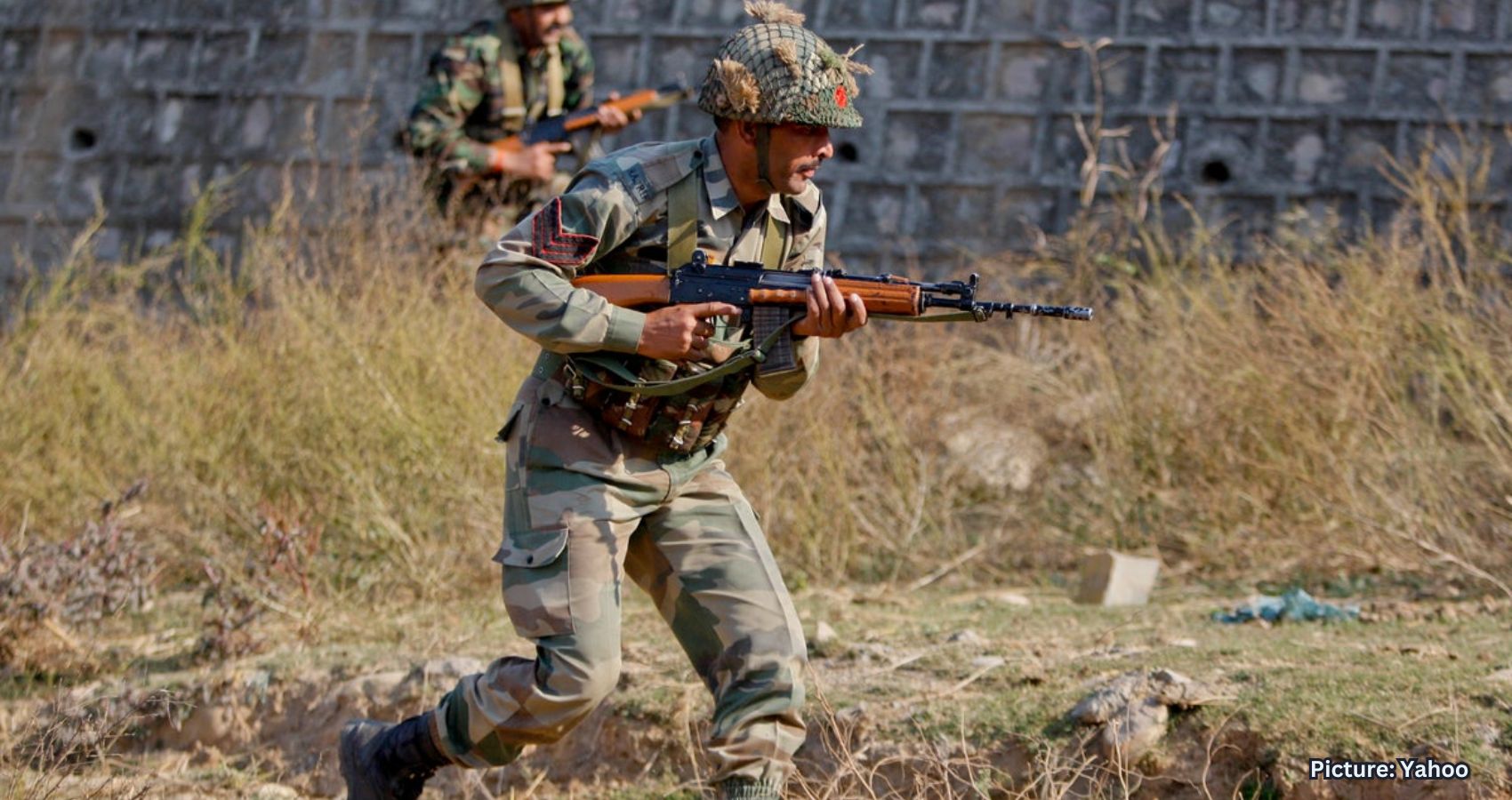As tensions between India and Pakistan surge following a deadly terrorist attack in Pahalgam, the Ministry of Home Affairs (MHA) has instructed all states and Union Territories to carry out civil defence mock drills on May 7, aimed at boosting national emergency preparedness.
These preparedness exercises will take place in 244 officially notified Civil Defence districts, in accordance with the Civil Defence Rules of 1968. The MHA issued an order stating, “States and union territories have been instructed to organise and oversee the drill. It will involve local government authorities, Civil Defence wardens, Home Guards, National Cadet Corps (NCC), National Service Scheme (NSS) volunteers, Nehru Yuva Kendra Sangathan (NYKS) members, and students from schools and colleges.”
According to government sources, the mock drills will focus on several critical objectives. First, they aim to assess the effectiveness of air raid warning systems. Second, they will test the functionality and activation of Hotline and Radio Communication Links with the Indian Air Force. Third, the operation of both main and shadow control rooms will be examined. Fourth, civilians and students will be trained on civil defence measures to help them protect themselves during potential hostile attacks. Fifth, the drills will check the provision and implementation of crash blackout measures. Sixth, there will be an emphasis on early camouflage techniques for protecting vital installations and plants. Seventh, the ability and coordination of Civil Defence services—including warden services, firefighting units, rescue teams, and depot operations—will be evaluated. Eighth, the proper execution of blackout protocols will be reviewed. Finally, evacuation plans will be assessed for effectiveness and practical implementation.
In Delhi, police officials have begun preparations in line with these directives. All Deputy Commissioners of Police (DCPs) have been instructed to formulate detailed contingency plans. According to PTI sources, DCPs are conducting strategic meetings with senior officers to increase patrols and enhance security at key locations throughout the capital as part of the broader civil defence readiness initiative.
The increased emphasis on civil preparedness comes against the backdrop of escalating hostilities between India and Pakistan. Both nations have taken a series of retaliatory steps, including recalling certain diplomats and restricting airspace and port operations. India has also halted the crucial Indus Waters Treaty (IWT), a major step in bilateral relations. In turn, Pakistan reportedly violated ceasefire terms along the Line of Control (LoC) in Jammu and Kashmir, engaging in small arms fire for ten consecutive nights, significantly heightening the already volatile situation between the two countries.
Reacting to India’s suspension of the IWT, Pakistan warned of a retaliatory response using its “full force and might” if water flow from India is either stopped or diverted. The warning came as India shut all gates of the Salal Dam on the Chenab River on Monday. Officials confirmed to ANI that this led to visibly reduced water levels in the Reasi district of Jammu and Kashmir.
Under the Indus Waters Treaty, the waters of the Western Rivers—Indus, Jhelum, and Chenab—are allocated to Pakistan, while the Eastern Rivers—Ravi, Beas, and Sutlej—are allocated to India. Although Pakistan holds primary rights over the Western Rivers, India retains limited rights for domestic, agricultural, non-consumptive, and hydroelectric use under strict regulations. The Salal Dam, a run-of-the-river hydroelectric project on the Chenab, fits within these defined parameters.
In the wake of these developments, India’s Defence Minister Rajnath Singh affirmed his unwavering commitment to safeguarding the nation. “As the Defence Minister, it is my duty to stand with the armed forces and deliver a strong response to any threat against India,” he said. Following a series of high-level meetings with senior officials, Prime Minister Narendra Modi granted the Indian Armed Forces full autonomy in choosing the “mode, timing & target” of India’s response to the attack, considered the deadliest since the Pulwama incident in 2019.
According to officials quoted by PTI, the Prime Minister declared, “It is our national resolve to deal a crushing blow to terrorism.” He further pledged that India would pursue terrorists and their enablers—implicitly pointing at Pakistan—to the “ends of the earth” and ensure they are met with punishment “beyond their imagination.”
Meanwhile, Pakistan has escalated its military readiness. On Monday, it conducted its second missile test within two days, a surface-to-surface missile with a range of 120 km. The Pakistani military stated that the test was aimed at validating its operational preparedness and confirming technical specifications, including those of its advanced navigation system. Just days earlier, on May 3, Pakistan tested the Abdali Weapon System with a 450 km range, which India reportedly interpreted as a “blatant provocation.”
Pakistan’s Prime Minister Shehbaz Sharif reinforced confidence in his country’s military capabilities, stating that its defence was “in strong hands.” In response, India has not remained passive. The Indian Navy successfully tested its MRSAM system aboard the newly inducted warship INS Surat in the Arabian Sea, effectively intercepting a low-flying aerial target. Additionally, the Advanced Light Helicopter (ALH) fleet has returned to operational service after a brief technical halt, further enhancing India’s defence posture.
As military activity grows more intense along the LoC, global powers have expressed grave concern and called for restraint from both sides. The United States, European Union, and China have all issued appeals for de-escalation, emphasizing the high stakes of potential conflict between two nuclear-armed nations.
However, if war were to break out, clear international alignments are beginning to emerge. China, Bangladesh, and Turkey have publicly pledged their support to Pakistan in case of an open conflict. On the other hand, countries like Russia, the United Kingdom, and Japan have extended their support to India.
The situation remains volatile and continues to evolve rapidly, with both sides taking assertive diplomatic, military, and strategic actions in response to recent events. While civil defence drills on May 7 may seem like routine emergency preparedness measures, they now serve as a stark reminder of the high-stakes climate in the region—where preparation, both civil and military, is no longer a precaution but a necessity.

